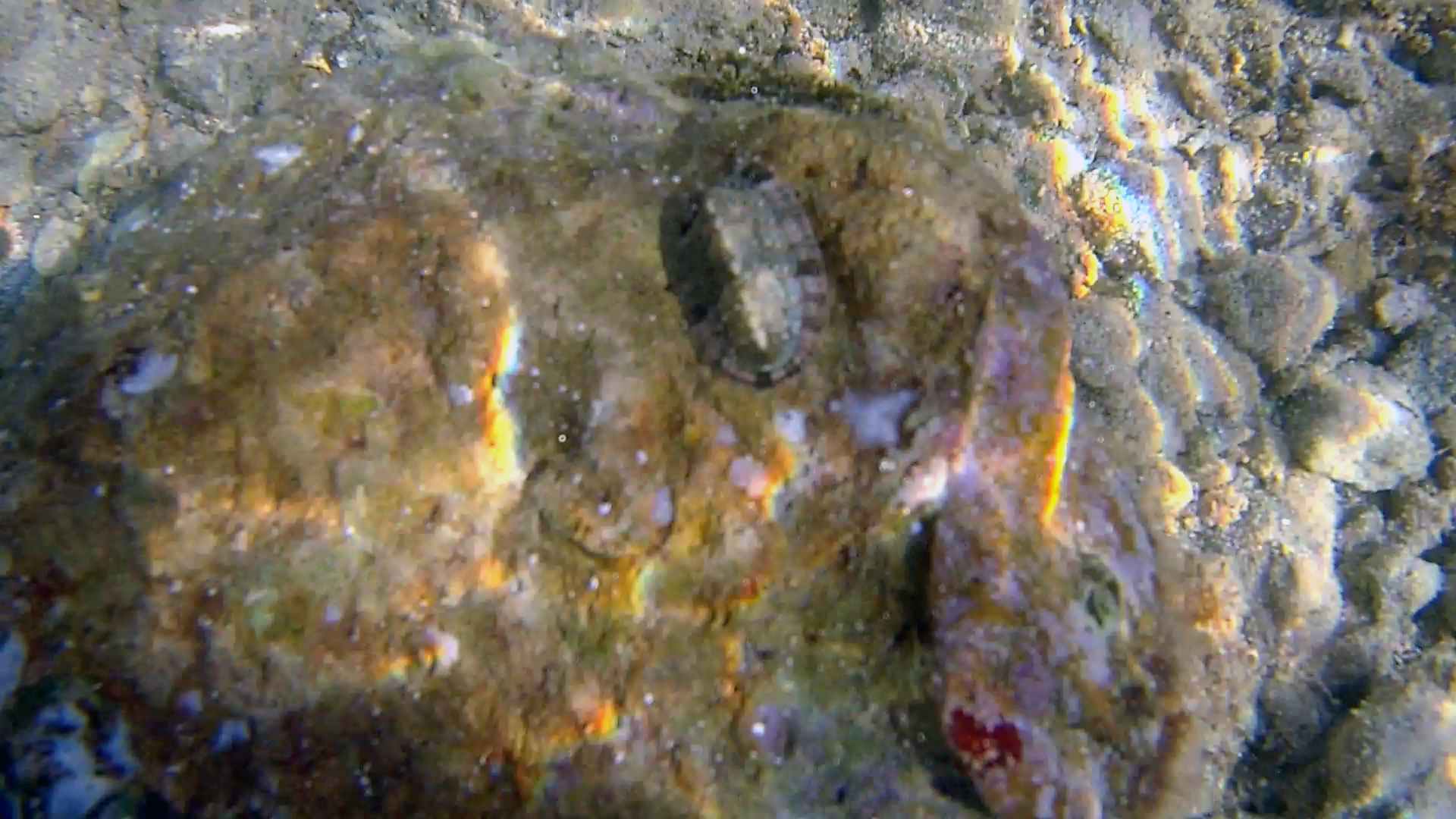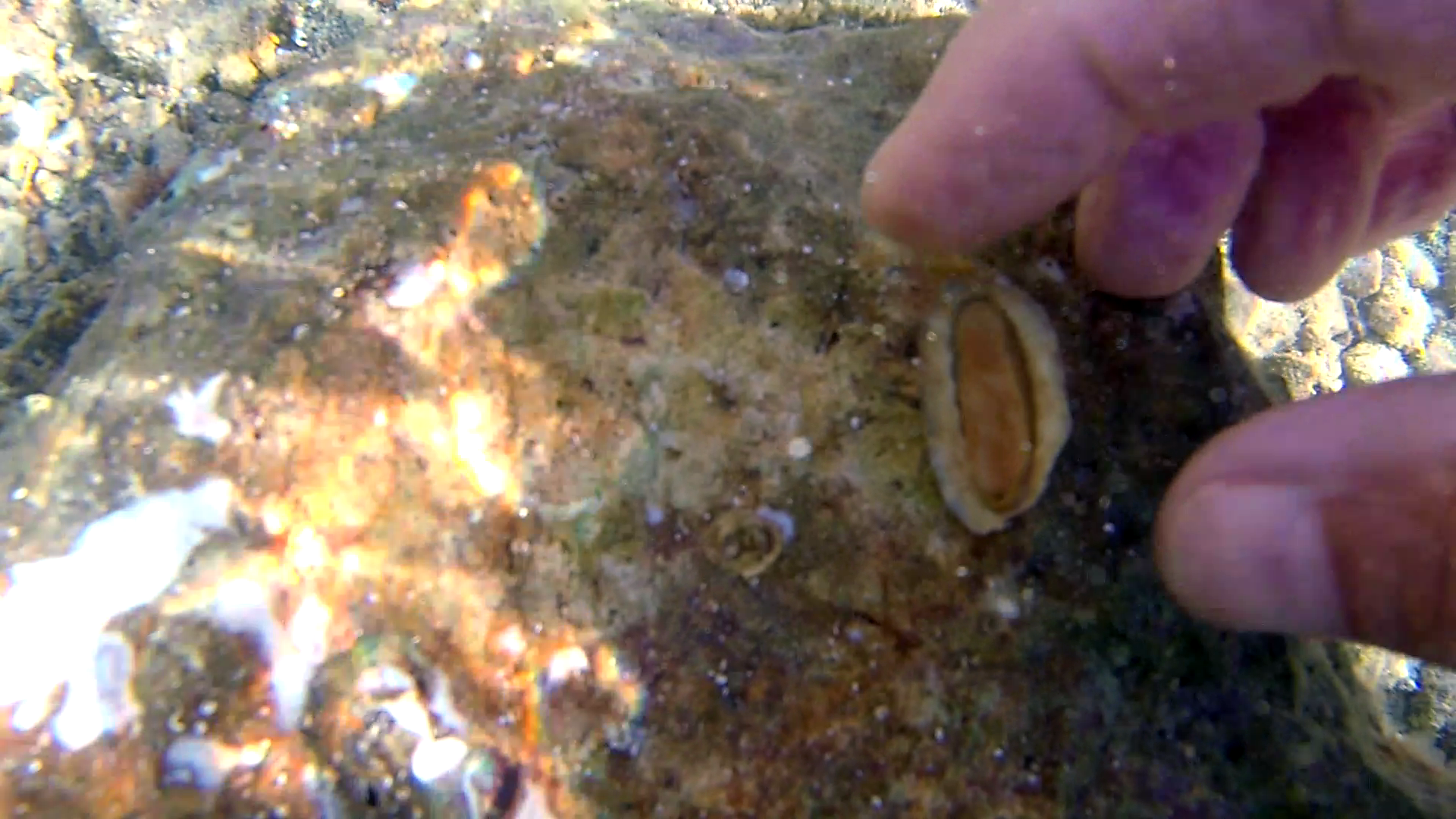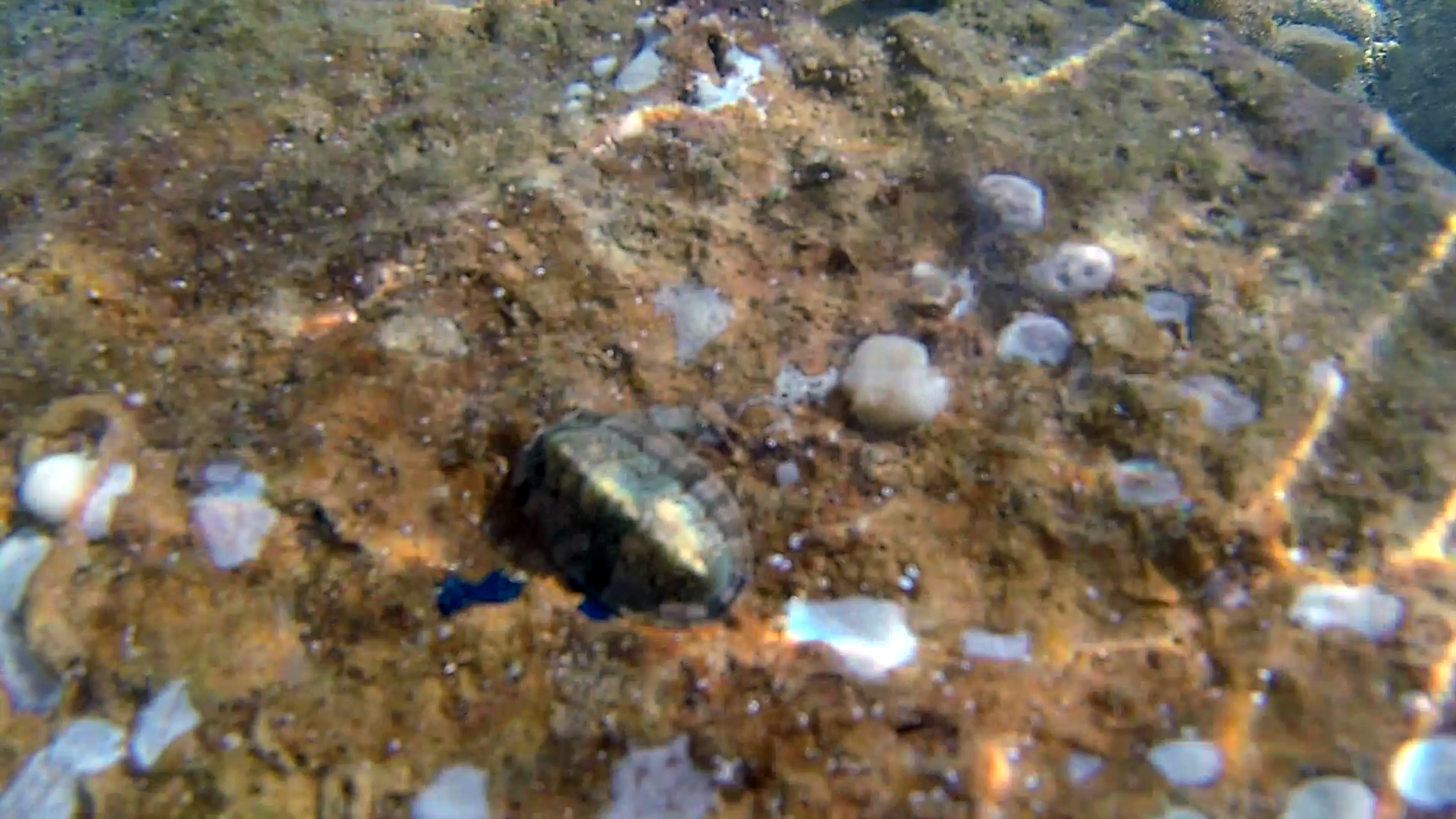Chitone del Mediterraneo - Chiton olivaceus
Chiton olivaceus, the green chiton, is a species of chiton, a marine polyplacophoran mollusk in theChitonidae family, the typical chitons. Chiton olivaceus can reach a length of 20-30 millimetres and a width of about 16 millimetres. These large chitons have carinate plates with strongs ribs. The shell is oblong and oval. In the front and rear plates ribs have a radial pattern. The intermediate valves show a sharp beak and rounded sutural plates. Colors are very variable, ranging from olive-gray (hence the common name) to yellow-brown, sometimes black, orange, red or yellow. The girdle surrounding all of the valves is quite large and covered by bristles and scales. chitone del mediterraneo

The teeth of these grazers of algae are composed of magnetite, the hardest material usable by a living being. This species is common in the Mediterranean sea ( Italy and Greece), but can also to be found in the nearby Atlantic Ocean. Chiton olivaceus occur on a solid substrate, particularly stones and rocks, in the zones of sweeping of the waves, at a low depth.

Chitons have a shell composed of eight separate shell plates or valves. These plates overlap slightly at the front and back edges, and yet articulate well with one another. Because of this, the shell provides protection at the same time as permitting the chiton to flex upward when needed for locomotion over uneven surfaces, and even allows the animal to curl up into a ball when dislodged from rocks. The shell plates are encircled by a skirt known as a girdle.

Chitons live worldwide, from cold waters through to the tropics. They live on hard surfaces, such as on or under rocks, or in rock crevices. Some species live quite high in the intertidal zone and are exposed to the air and light for long periods. Most species inhabit intertidal or subtidal zones, and do not extend beyond the photic zone, but a few species live in deep water, as deep as 6,000 m. Chitons are exclusively and fully marine. This is in contrast to the bivalves, which were able to adapt to brackish water and fresh water, and the gastropods which were able to make successful transitions to freshwater and terrestrial environments.
(extract from Wikipedia)
https://www.intotheblue.it/2020/11/06/chitone-del-mediterraneo/
